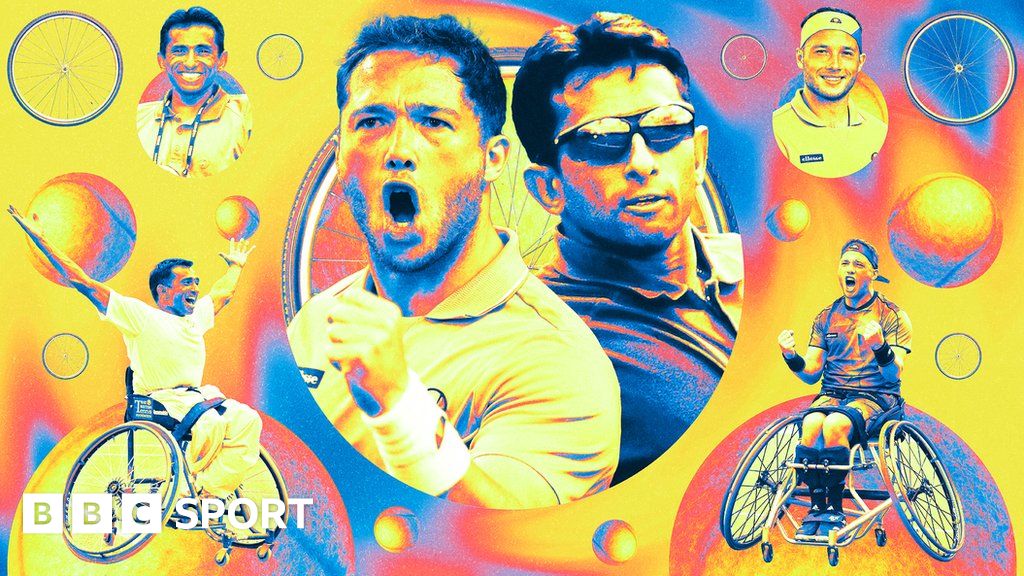In 2005, Mistry and Frenchman Michael Jeremiasz won the inaugural wheelchair competition at Wimbledon, for which they earned £1,300 each. Fast forward to 2023 and the wheelchair doubles champions at the All England Club, Alfie Hewett and Gordon Reid, picked up £13,000 each.
Mistry says he would not change a thing about his career, during which he travelled the world and made life-long friendships. Those times may not have been flush with cash, but they were rich in experience – including a locker-room chat with Agassi before a US Open final.
“When you entered a tournament in those days you’d pay an entry fee, say £200, and that would include accommodation, food, entry into the tournament,” Mistry, a four-time Paralympian who won 68 titles and who was a top-10 player in singles or doubles for over 12 years, remembers.
“I was playing the French Open once and sharing with a French guy. I didn’t know him, they just put us in a room. His snoring was so bad that I actually had to take my pillow and my duvet and sleep in the hallway.
“Today everyone’s got individual rooms, they’ve got their coaches with them, they’re flying first class. It’s a different world. I think in an average year, even towards the end of my career, I was probably earning £20,000 for the year and I would have done 20 tournaments.”
When it was announced in August 2001 that the following year’s Australian Open would feature a wheelchair competition, Tennis Australia president Geoff Pollard said: “This new initiative gives us a chance to continue to grow the sport by showcasing the world’s best.”
Staging the wheelchair game in the same time and space as a Grand Slam changed perceptions, integrating wheelchair tennis into the non-disabled game in a way that is, as Mistry puts it, “built in, not bolted on”.
He adds: “It’s not only it being at the Grand Slams which gives it a sort of credibility, but the exposure of being part of the event too.
“It adds a great deal towards the inclusive nature that wheelchair tennis brings.”
The exposure has helped the likes of Alcott, all-conquering Dutch legend Esther Vergeer, and Mistry’s compatriot and eight-time Grand Slam singles champion Hewett – who was on the shortlist for the 2023 BBC Sports Personality of the Year – become genuine stars.
These days it is common for a wheelchair event to run within an ATP or WTA event – the prestigious Queen’s Club tournament in London is among those to stage one – and this trend looks set to continue.
Vergeer, who…
Click Here to Read the Full Original Article at BBC Sport…

